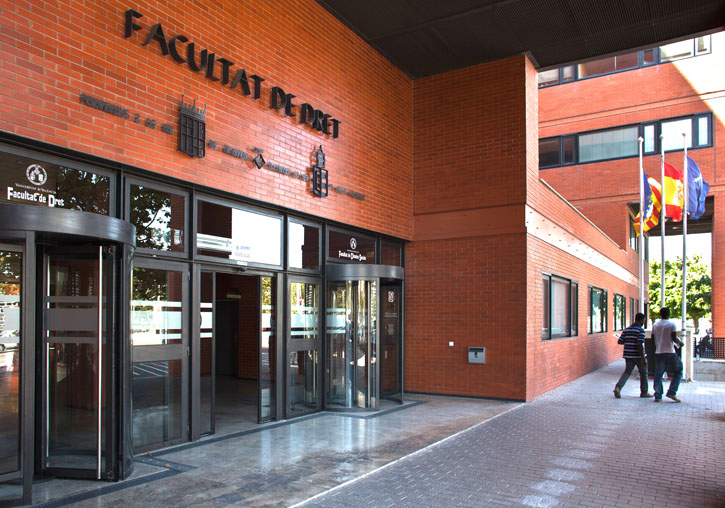A conference analyses the draft bill to reduce the temporary nature of interim civil servants
- Scientific Culture and Innovation Unit
- December 14th, 2021

The Faculty of Law of the University of Valencia has culminated the International Conference on innovative systems in the selection and consolidation of personnel in the public sector. There has been a consensus among specialists that the memorisation model is not the most appropriate and alternatives that are already underway in El Campello, Sabadell, Valencia and Vigo have been presented. In addition, aspects of the bill passed by Congress to reduce the temporary staffing of the civil service, such as the elimination of the examination in the event that the post has been filled for five years, have also been analysed.
These lectures were held in the Ignasi Albiol room of the Faculty of Law and brought together academic staff from various Spanish and international universities. Teachers have reflected on the current situation of public employment, as well as pointing out innovative systems in the selection of civil service jobs.
This was the case of Professor Gabriel Doménech, who explained why the memorisation system must be changed because of the enormous costs it entails for the people being examined, but also for society, as opponents and Opponents “use time and stop making money to be preparing”. Therefore, he has proposed other models such as a state exam, similar to the MIR or the PAU in Spain.
However, several experts in the professional field from different city councils have also discussed the challenges in this regard, setting out their roadmaps to improve the selection of public employment. Among the experiences that have been seen are those of the municipalities of Valencia, El Campello, Vigo and Sabadell.
On the other hand, there has been a debate on the bill that the Congress of Deputies has approved and passed in the Senate, which aims to reduce the temporary nature of temporary staff. In this line, the specialists agree that at the moment “we have to be careful” because it has not yet been approved definitively, although they have noted that everything indicates this is the case.
The novelty is that those posts that have been filled for five years, since 2016, and that they must be tendered out, that is, to only take into account the merits and do not take the exam to fill the post. “The key here is that it is the position that is submitted to the competition and can be won by anyone, the temporary person who filled it or any other, just to see who wins there will be no exam and only the merits will be assessed, that is, who has the longest CV”, explained Adrián Todolí, professor of Labour Law and Social Security at the UV and co-organiser of the event.
Regarding the overview of the conference, the teacher said that these have been “a great opportunity to improve the system of public examinations and tenders in public employment, and reflect on one of the current debates on the table at the political and legislative level with the new bill of the Congress: the reduction of the temporality”.
In addition to Todolí, the conference is organised by the Law teachers and researchers Alba Soriano, Ángela Martín-Pozuelo and José Miguel Sánchez. These conferences are held by the Department of Innovation, Universities, Science and Digital Society of the Valencian Government.
















